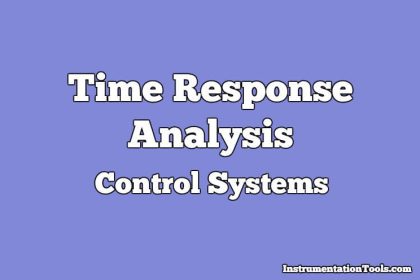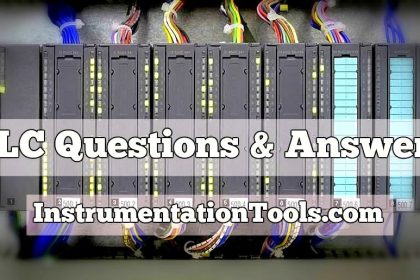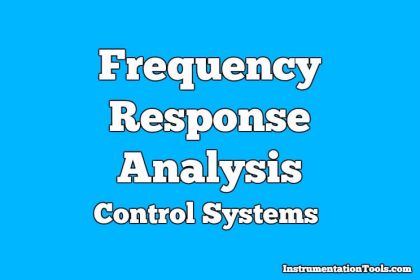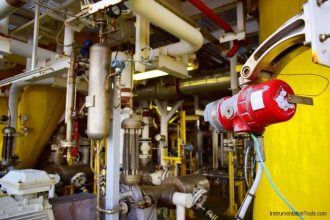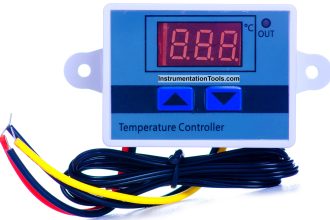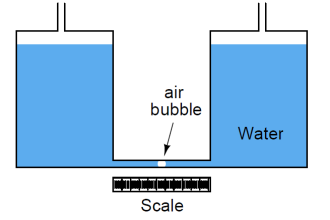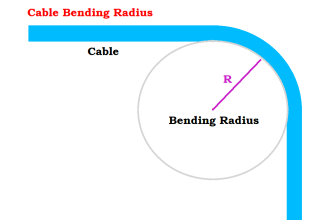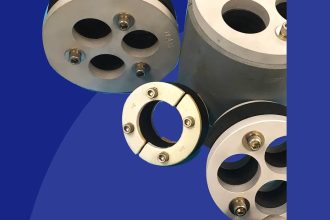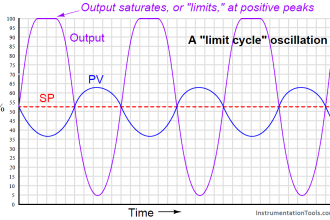Analyzers Based on Gas Density Questions & Answers
1. Which of the following is the relationship between density of ideal gas and its molecular weight?
a) Directly proportional
b) Inversely proportional
c) Linear
d) No relation
Answer: c
Explanation: Density of an ideal gas has a direct linear relation with the molecular weight of the gas.Density can be used to analyse gases.
2. Under which of the following conditions do all real gases behave as ideal gases to some extent?
a) Low temperature and low pressure
b) Low temperature and high pressure
c) High temperature and low pressure
d) Room temperature and normal pressure
Answer: d
Explanation: All real gases behave as ideal gases at room temperature and normal pressure. Hence, density can be used to analyse gases.
3. Which of the following detectors are not used in analyzers based on gas density?
a) Hot wire
b) Platinum filament
c) Thermistor
d) Thermometer
Answer: d
Explanation: Thermometer is not used as detector in analyzers based on gas density. Thermistors and hot wires are generally used.
4. When would the recorder indicate a zero base line in analyzers based on gas density?
a) When the detector on the sample side is cooler than that on the reference side
b) When the detector on the reference side is cooler than that on the sample side
c) When flow is unbalanced
d) When both the detectors are equally cooled
Answer: d
Explanation: The recorder indicates a zero base line in analyzers based on gas density when flow is balanced. When flow is balanced both the detectors are equally cooled.
5. The use of thermistor eliminates the requirement for amplification.
a) True
b) False
Answer: a
Explanation: The use of thermistor eliminates the requirement for amplification. Hence, it is generally used in analyzers based on gas density.
6. In analyzers based on gas density, the unbalance of the bridge is linearly proportional to which of the following?
a) Temperature of sample detector
b) Pressure at sample detector
c) Pressure difference between both the detectors
d) Gas-density difference between both the detectors
Answer: d
Explanation: In analyzers based on gas density, the unbalance of the bridge is linearly proportional to gas-density difference between both the detectors. Instruments based on principle of gas-density balance are commercially available.
7. Which of the following bridges are used in analyzers based on gas density?
a) Wheatstone bridge
b) Kelvin’s bridge
c) Anderson’s bridge
d) Schering’s bridge
Answer: a
Explanation: Wheatstone bridge is generally used in analyzers based on gas density. Themistors or hot-wires can be used as detectors.
8. In analyzers based on gas density, if the sample carries a gas having higher density than the detector which of the following occurs?
a) It will cause a net downward flow
b) It will cause a net upward flow
c) It splits into two beams
d) There will be no difference in flow
Answer: a
Explanation: In analyzers based on gas density, if the sample carries a gas having higher density than the detector it will cause a net downward flow. It will obstruct flow in the lower path.
9. When hot-wires are used as detectors amplification is not required.
a) True
b) False
Answer: b
Explanation: When hot-wires are used as detectors amplification is required. The amplified signal is given to the recorder.
10. Which of the following is the effective sample volume in analyzers based on gas density?
a) 10 ml
b) 20 ml
c) 5 ml
d) 50 ml
Answer: c
Explanation: The effective sample volume in analyzers based on gas density is 5ml. Instruments based on principle of gas-density balance are commercially available.

